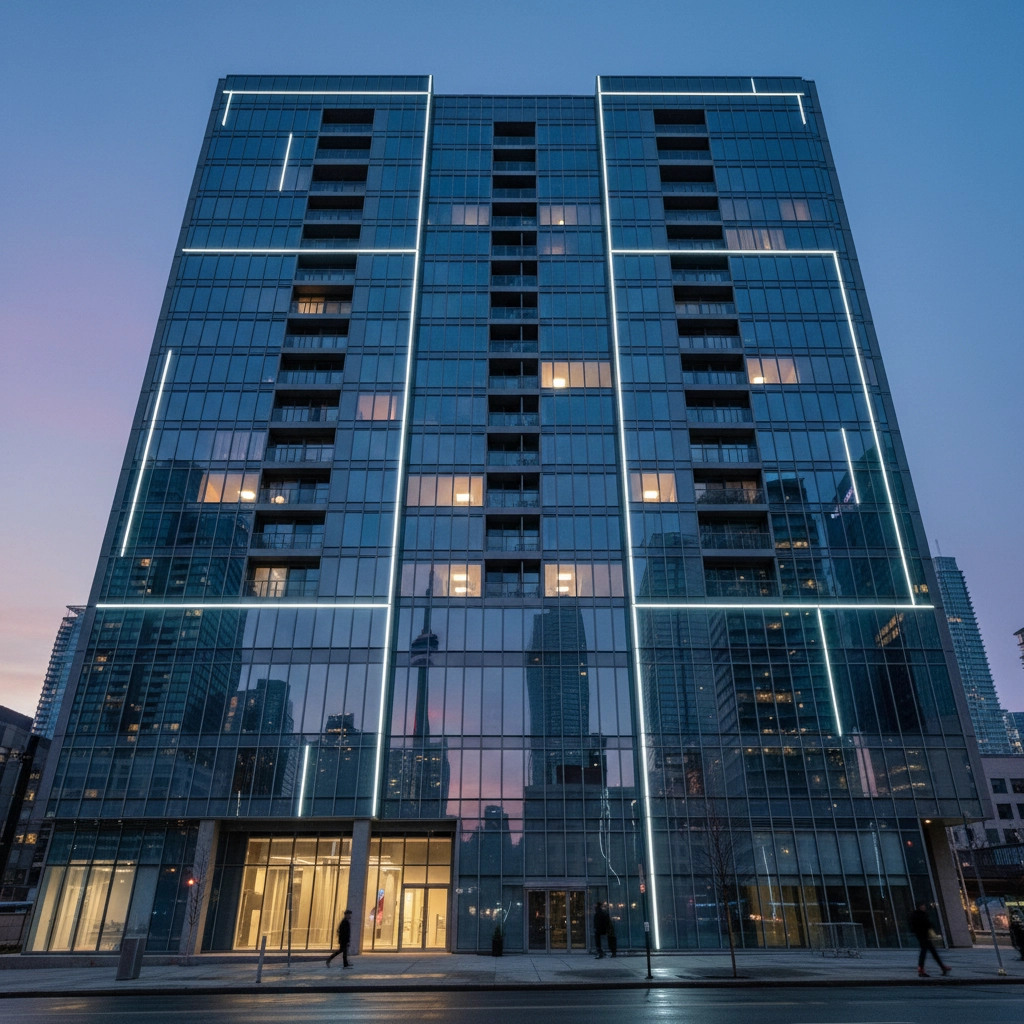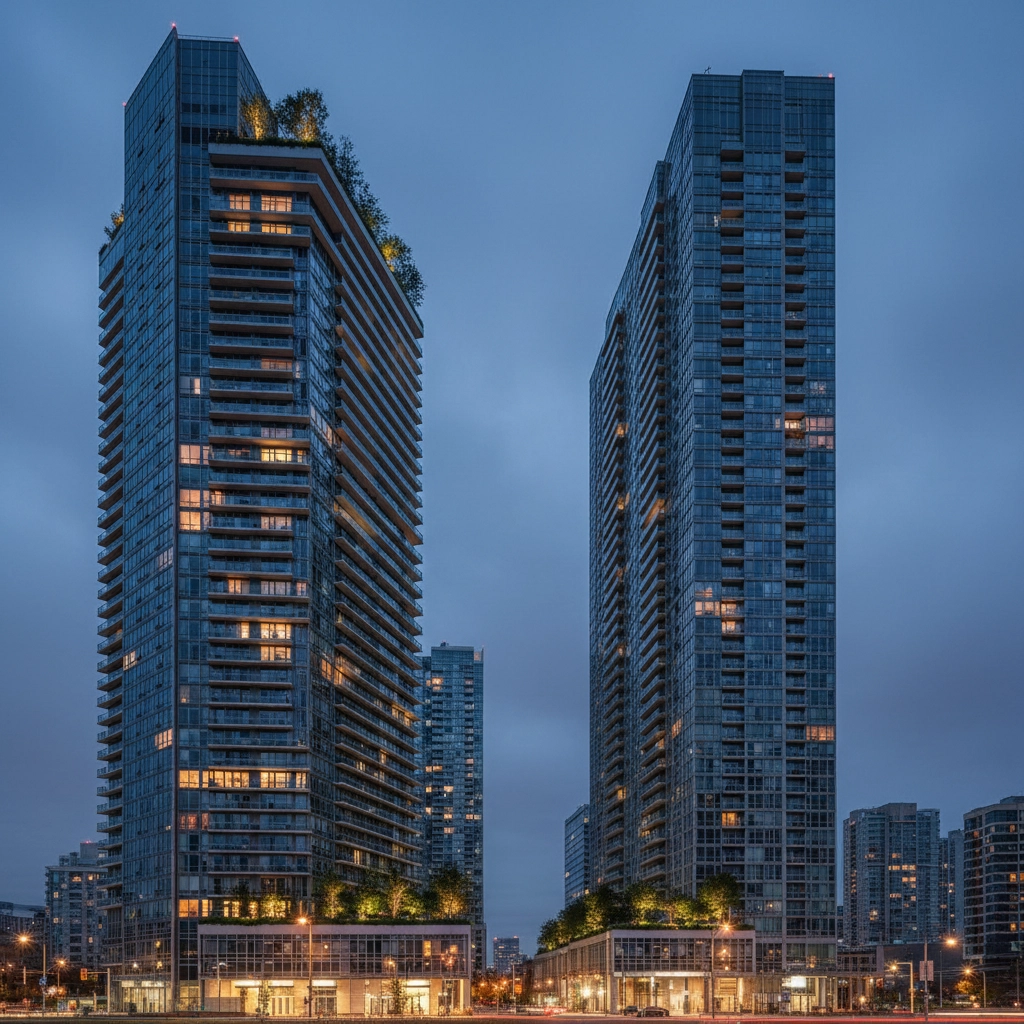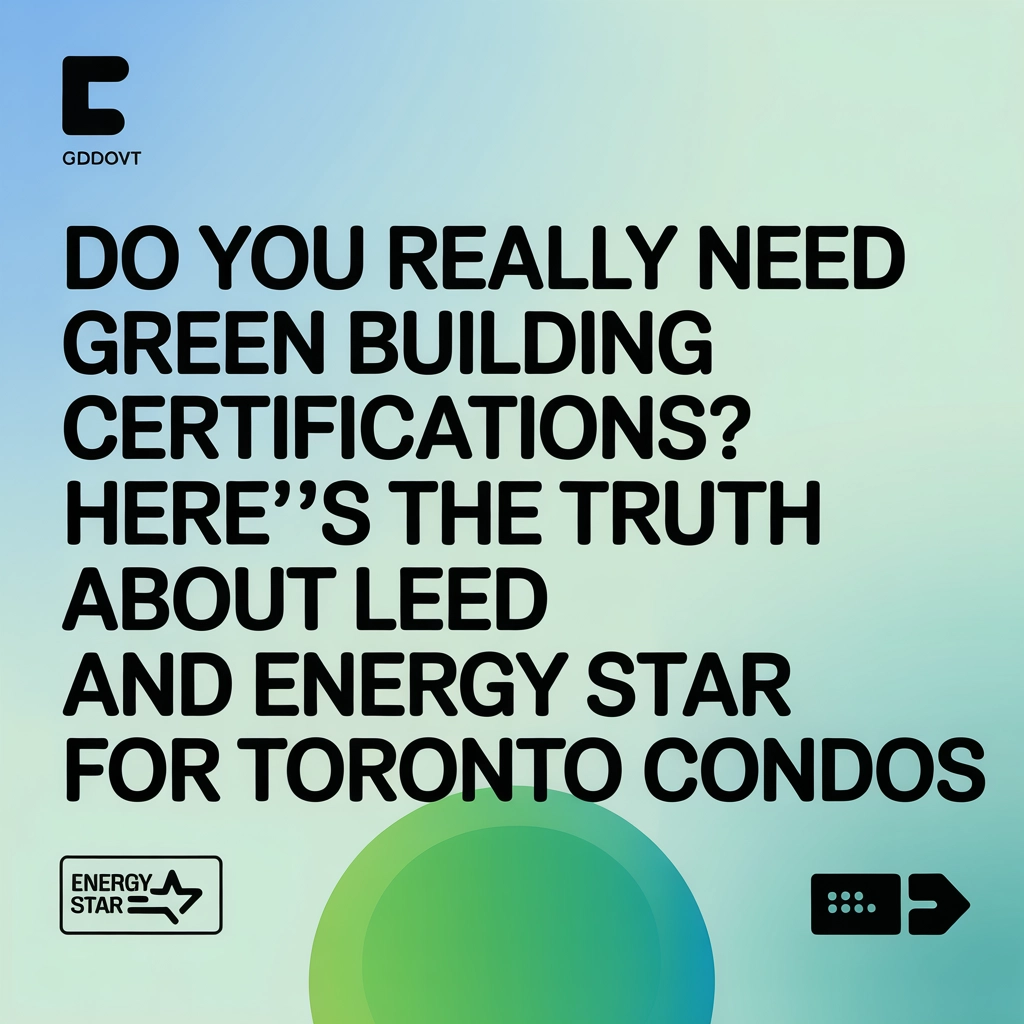Walk into any Toronto condo board meeting these days, and you'll hear the same questions: "Should we go for LEED certification?" "Is ENERGY STAR worth the hassle?" "Are we missing out on something big?"
Here's the straight answer: It depends entirely on what you're trying to achieve. But before you roll your eyes at another "it depends" response, let's dig into the actual data and real-world outcomes that Toronto condo boards are seeing.
The Financial Reality: Numbers Don't Lie
Let's start with the bottom line: because that's usually where these conversations end up anyway. LEED-certified condos in Toronto are selling for 5% to 14% more than their non-certified counterparts. That's not marketing fluff; that's actual market data from recent sales.
For a $800,000 condo unit, we're talking about an additional $40,000 to $112,000 in value. Suddenly, those certification costs start looking a lot more reasonable, don't they?
But here's where it gets interesting (and where many people get it wrong): the benefits aren't just about that one-time sale premium. Certified buildings typically see lower operating costs, which translates to more stable maintenance fees over time. Your residents notice this stuff: especially when their neighbor in the conventional building next door is dealing with another special assessment for HVAC repairs.

How LEED and ENERGY STAR Actually Work Together
There's a ton of confusion about these two programs. Let me clear this up once and for all: LEED and ENERGY STAR aren't competing systems: they're complementary.
Think of ENERGY STAR as the foundation and LEED as the full house. ENERGY STAR focuses specifically on energy performance and efficiency. It's straightforward, measurable, and focuses on one thing: how much energy your building uses compared to similar buildings.
LEED, on the other hand, takes a broader approach. It looks at six main areas:
- Location and transportation access
- Energy and atmosphere performance
- Sustainable site development
- Materials and resources selection
- Water efficiency and savings
- Indoor environmental quality
Here's the kicker: if you're pursuing LEED certification for an existing building, you actually need ENERGY STAR certification first. They're not either/or choices: they're building blocks.
What's Really Happening in Toronto's Market
Toronto's condo market is seeing about 1 in every 15 new developments achieving some level of LEED certification. That might not sound like a lot, but it's a significant shift when you consider where we were just five years ago.
Some standout examples include the TD Center Tower at 100 Wellington, which became Toronto's first LEED Platinum building, and the upcoming RBC Waterpark tower with its innovative deep-lake cooling system. These aren't just vanity projects: they're proving that green building technology works in Toronto's climate and market conditions.

But here's what the marketing materials won't tell you: not every certified building is seeing the same results. The benefits tend to be most pronounced in newer developments and buildings where the certification was part of the original design, not a retrofit afterthought.
The Drawbacks Nobody Talks About
Let's be honest about the challenges, because pretending they don't exist doesn't help anyone make better decisions.
The certification process can be a real pain. We're talking about months of documentation, third-party verification, and ongoing monitoring requirements. For some condo boards, the administrative burden alone is enough to kill the project before it starts.
Costs can spiral quickly. While the long-term financial benefits are real, the upfront investment can be substantial. Between consultant fees, building upgrades, and certification costs, you're looking at a significant capital expenditure that needs board approval and, in many cases, a special assessment.
Results aren't guaranteed. Some buildings have invested heavily in green certification only to see minimal impact on property values or operating costs. This tends to happen when the certification becomes more about checking boxes than making meaningful improvements to building performance.

Making the Right Decision for Your Building
So how do you decide if green certification makes sense for your building? Here are the key factors that successful Toronto condo boards consider:
Building Age and Condition: Newer buildings (built after 2010) typically see better returns on green certification investments. Older buildings can still benefit, but the retrofit costs need to be weighed more carefully against expected returns.
Resident Demographics: Buildings with environmentally conscious residents or those in neighborhoods where sustainability is valued tend to see stronger market premiums for certified buildings.
Financial Position: If your building is already facing major capital expenditures for systems upgrades, integrating green certification into those projects can be cost-effective. Trying to pursue certification when your reserve fund is already stretched thin is usually a mistake.
Long-term vs. Short-term Focus: Certification makes most sense when your board is thinking about 10+ year ownership cycles. If you're in a building where residents typically flip units within 3-5 years, the benefits may not justify the investment.
What This Means for Your Condo
The truth about green building certifications is nuanced, but here's the practical takeaway: they're becoming table stakes in Toronto's competitive condo market.
You don't necessarily need LEED Platinum certification to compete, but having some level of environmental performance verification is increasingly important for property values and resident satisfaction.
If you're on the fence, consider starting with ENERGY STAR certification. It's more straightforward, less expensive, and gives you real data about your building's performance. From there, you can make an informed decision about whether to pursue more comprehensive LEED certification.

The buildings that are seeing the best results aren't necessarily the ones with the most certifications: they're the ones where sustainability initiatives are part of a broader strategy to maintain and enhance property values over time.
At GIA Property Management, we work with condo boards to evaluate these decisions based on each building's specific circumstances and goals. Because at the end of the day, the best certification is the one that makes financial and practical sense for your community.
The green building trend isn't going anywhere. The question isn't whether Toronto condos will eventually need to address sustainability: it's whether your building will be ahead of the curve or scrambling to catch up. The choice, as they say, is yours.

